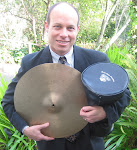 |
| Photo by Josh Haner/The New York Times |
Judaism shows the same trends. The Jewish Daily Forward reports that "nearly half of Jewish adults raised Reform [the most liberal wing of American Judaism], a new study shows, leave the denomination, most of them in favor of an unaffiliated Jewish life. In recent years, the movement’s growth has stalled, with affiliation holding steady thanks only to new members replacing those who have left.""Practically every denomination — Methodist, Lutheran, Presbyterian — that has tried to adapt itself to contemporary liberal values has seen an Episcopal-style plunge in church attendance. Within the Catholic Church, too, the most progressive-minded religious orders have often failed to generate the vocations necessary to sustain themselves."
Why? Douthat claims that "leaders of the Episcopal Church and similar bodies often don't seem to be offering anything you can't already get from purely secular liberalism." I agree. Those that aren't interested in praying to a transcendent G-d can give charity, support the homeless, work for income equality, provide education, fight injustice, and find a community of like-minded individuals outside of any religious institution. If a church or synagogue membership predominantly serves as a triage officer, directing people here and there for good works and downplays spiritual fervor and a relationship with and, especially, responsibilities to G-d, why not join any benevolence society instead? If G-d won't reward you for taking communion or saying the Shema or punish you for not doing so, why not just join the Democratic party and keep your weekends free?




I agree. It is a very interesting analysis. Maybe liberal people like to be part of a religious organization because they can affiliate with people who they believe are "like" them where political organizations are more heterogeneous acrording to race or ethnicity, for example
ReplyDeleteYes, though is that enough interest to keep the religious organization healthy?
DeleteI love the punchline: "...why not just join the Democratic party and keep your weekends free?" Bam!
ReplyDeleteSpeaking from the Roman Catholic perspective, in addition to what is mentioned about "progressive-minded religious orders," I can personally attest that where significant growth is being seen -- especially among young people/families -- is in the very traditional/conservative Extraordinary Form of the Mass, said in Latin as it has been for hundreds and hundreds and hundreds of years. These young families also tend to raise quite a few children.
So the social/cultural trend is that the progressive/liberal minded folks are becoming less religious and less numerous, as many of them choose not to have (many) children, and the traditional/conservative folks who take their religion seriously yearn for the piety of days gone by -- not the futility of progressive 'morality' -- and gradually increase their share of the population.
Thanks for reading and I'm glad you enjoyed it!
DeleteI appreciate your insights about followers of the Extraordinary Form of the Mass. I am intrigued by the data--the same trends appear in Catholicism, Protestantism, and Judaism. Even in Orthodox Judaism, Modern Orthodoxy (eg., Jews that fully engage in Western culture like Joe Lieberman)wanes and Haredi (ultra Orthodox) groups flourish.
Perhaps more people are leaving organized religion because they see the fallacies inherent in it. Religion is as old as mankind itself. In the beginning,people believed in a god or gods because they couldn't explain nor understand the world around them.Science has now solved that mystery. To those of us who do not believe and who see the inherent dangers and destructive divisiveness of religion ,it seems difficult,if not impossible to understand why any thinking person would need to be part of a congregation except for the social possibilities,which is why many people join. If going to temple or church comforts and sustains some people that's fine for them. But don't assume people leave the church or temple because it's the easy way out. Maybe they finally see the light.
ReplyDeleteYeah I agree with your thoughts. I hear many reform people say that their favorite part of Judaism is the community activities. I like being around Jewish people and feel a connection to them. But definitely I see many reform friends just use religion to get jobs or connections, rather than emphasizing the observance part.
ReplyDelete